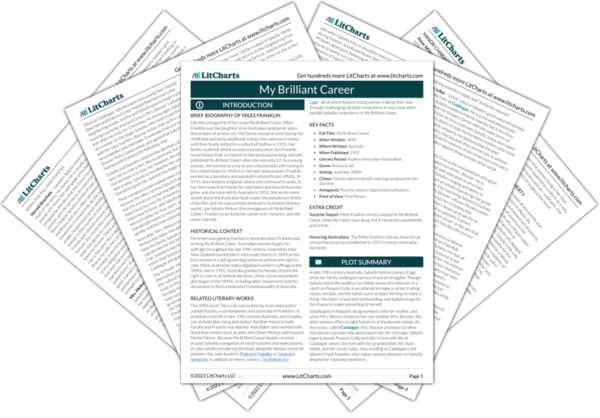Sybylla falls back into her insecurities. She compares herself to Harold, finding more and more flaws in herself as she finds more positive qualities in him. Even though Harold shares some of the traits she dislikes in herself––he too is young, and now he is also poor––Sybylla reserves her disdain for herself. Her insecurities are also distinctly gendered, as she chastises herself for thinking she could help Harold when she is “only a woman.” She doesn’t blame herself entirely for the limits of womanhood, however. She implicitly recognizes that womanhood is only a disadvantage because the world is made for men, not because of any inherent weakness in women.
